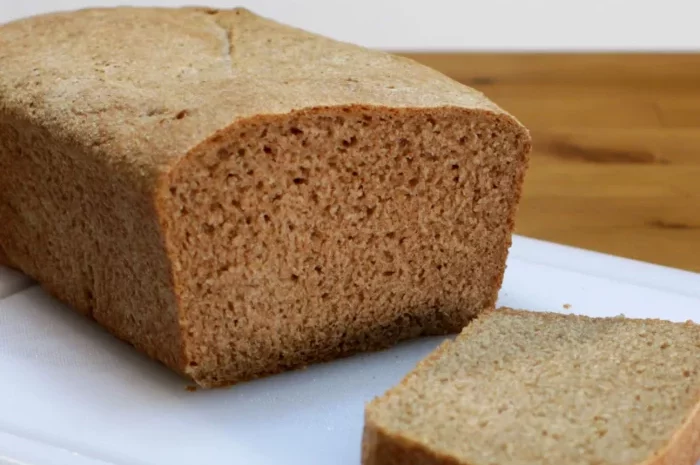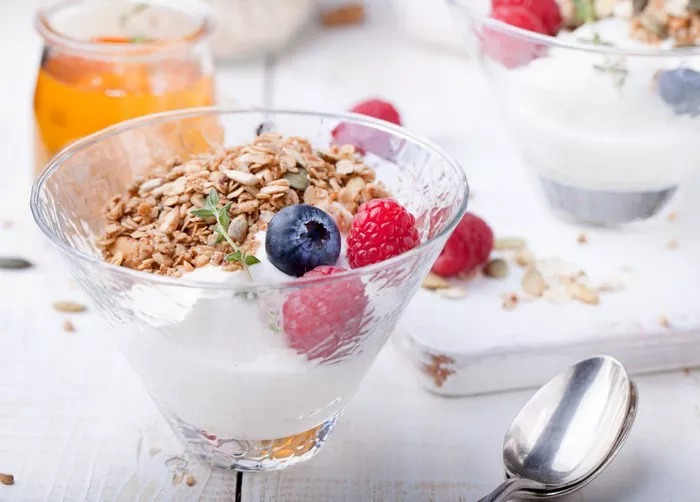Managing diabetes effectively requires a careful balance of diet, exercise, and medication. The foods we eat directly impact blood sugar levels, making diet a critical component of diabetes management. For individuals with diabetes in the UK, understanding which foods to avoid can help maintain stable blood sugar levels and improve overall health. This article will explore foods that should be avoided, offer healthier alternatives, discuss portion control, and provide tips on reading nutritional labels. Additionally, we’ll consider cultural aspects relevant to the UK population and emphasize the importance of seeking professional dietary advice.
Explanation of Diabetes and Diet
Diabetes is a chronic condition characterized by high levels of glucose in the blood. It occurs when the body either doesn’t produce enough insulin (Type 1 diabetes) or becomes resistant to insulin’s effects (Type 2 diabetes). Insulin is a hormone that helps glucose enter cells to be used for energy. Without effective insulin function, glucose accumulates in the bloodstream, leading to high blood sugar levels.
Diet plays a crucial role in managing diabetes because certain foods can cause rapid spikes in blood sugar levels. To maintain stable blood sugar levels, individuals with diabetes should focus on eating a balanced diet that includes a variety of nutrients and limits foods that cause significant blood sugar fluctuations.
How Diet Affects Diabetes Management
Blood Sugar Control: Consuming foods high in refined carbohydrates, sugars, and unhealthy fats can lead to rapid increases in blood sugar levels. Managing these spikes is crucial for preventing complications associated with diabetes, such as cardiovascular disease, nerve damage, and kidney problems.
Weight Management: Maintaining a healthy weight is important for managing Type 2 diabetes. Diets high in calories and unhealthy fats can contribute to weight gain, exacerbating insulin resistance.
Nutritional Balance: A balanced diet that includes a variety of nutrients helps support overall health and well-being. People with diabetes should aim to eat a mix of carbohydrates, proteins, and fats, with an emphasis on whole foods.
Importance of Avoiding Certain Foods
Avoiding certain foods helps to prevent rapid spikes in blood sugar and can aid in better diabetes management. Foods that are quickly converted into glucose or are high in unhealthy fats should be limited. By doing so, individuals with diabetes can maintain more stable blood sugar levels, reduce the risk of complications, and improve their quality of life.
Foods to Avoid
Refined Carbohydrates
Refined carbohydrates are processed foods that have been stripped of their fiber and nutrients, making them easily digestible and quickly converted into glucose. This rapid conversion can cause spikes in blood sugar levels. Common refined carbohydrates include:
White Bread: Made from refined flour, white bread lacks the fiber that helps slow down the absorption of glucose.
White Rice: Similar to white bread, white rice is a refined grain that can lead to rapid increases in blood sugar levels.
White Pasta: Refined pasta has a high glycemic index, meaning it can cause quick spikes in blood sugar.
Sugary Cereals: Many breakfast cereals are high in sugar and low in fiber, making them a poor choice for blood sugar control.
Healthier Alternatives:
Whole Grain Bread: Opt for bread made from whole grains, such as whole wheat or multigrain. These types contain more fiber and nutrients, which help moderate blood sugar levels.
Brown Rice: Brown rice is a whole grain that provides more fiber and nutrients than white rice, leading to a slower rise in blood sugar.
Whole Wheat Pasta: Choose pasta made from whole wheat or other whole grains to benefit from more fiber and a lower glycemic index.
High-Fiber Cereals: Look for cereals that are low in sugar and high in fiber, such as oatmeal or bran flakes.
Pastries and Pastry-Based Foods
Pastries and pastry-based foods are typically high in refined carbohydrates, unhealthy fats, and added sugars. These foods are calorie-dense and can lead to significant blood sugar spikes. Examples include:
Doughnuts: Often deep-fried and covered in sugar, doughnuts are a poor choice for blood sugar control.
Croissants: Made with refined flour and butter, croissants are high in fat and carbohydrates.
Pies and Tarts: These desserts usually contain a high amount of sugar and refined flour in both the crust and filling.
Healthier Alternatives:
Homemade Muffins: Make muffins using whole grain flour, minimal sugar, and added fruits or vegetables for fiber and nutrients.
Whole Grain Crackers: Choose crackers made from whole grains with minimal added sugars and fats.
Fruit and Yogurt Parfait: Layering fresh fruit with Greek yogurt can provide a satisfying dessert that’s lower in sugar and higher in protein and fiber.
Microwave Ready Meals
Microwave ready meals are convenient but often highly processed, with high calorie content, low nutritional value, and excessive amounts of sodium and unhealthy fats. These meals can lead to poor blood sugar control and other health
issues.
Healthier Alternatives:
Home-Cooked Meals: Preparing meals at home allows for better control over ingredients and portion sizes. Focus on fresh vegetables, lean proteins, and whole grains.
Batch Cooking: Prepare large quantities of healthy meals in advance and freeze them for later use. This can save time while ensuring nutritious options are readily available.
Pre-Packaged Salads: Look for pre-packaged salads with fresh ingredients and minimal added dressings or toppings.
Sugary Drinks and Snacks
Sugary drinks and snacks can cause rapid blood sugar spikes and contribute to weight gain. Examples include:
Sodas and Soft Drinks: High in sugar and calories with no nutritional value.
Fruit Juices: Even 100% fruit juices can be high in natural sugars and lack the fiber found in whole fruits.
Candy and Sweets: High in refined sugars and often lacking in essential nutrients.
Healthier Alternatives:
Water and Herbal Teas: Opt for water, sparkling water, or unsweetened herbal teas.
Whole Fruits: Eating whole fruits provides fiber that helps moderate the absorption of sugars.
Nuts and Seeds: A handful of unsalted nuts or seeds can be a satisfying snack that provides healthy fats and protein.
High-Fat and Processed Meats
High-fat and processed meats can negatively impact blood sugar levels and contribute to cardiovascular disease. Examples include:
Bacon and Sausages: Often high in saturated fats and sodium.
Processed Deli Meats: Contain additives and preservatives that can be unhealthy in large quantities.
Healthier Alternatives:
Lean Proteins: Choose lean cuts of meat, poultry, and fish. Plant-based proteins like beans, lentils, and tofu are also excellent choices.
Fresh Chicken and Turkey: Opt for skinless poultry to reduce fat intake.
Homemade Meatballs or Patties: Making your own allows control over the ingredients and the ability to use lean meats and add vegetables.
Portion Control and Balance
Importance of Portion Sizes
Even healthy foods can cause blood sugar spikes if eaten in large quantities. Portion control is vital for managing diabetes, as it helps regulate the amount of glucose entering the bloodstream at any given time.
Understanding Serving Sizes: Learning the appropriate serving sizes for different foods can help prevent overeating.
Using Smaller Plates: This simple trick can help reduce portion sizes without feeling deprived.
Mindful Eating: Paying attention to hunger and fullness cues can help prevent overeating and promote better blood sugar control.
Role of Balance in a Diabetic Diet
A balanced diet includes a variety of food groups to ensure all essential nutrients are consumed. For people with diabetes, this means:
Carbohydrates: Choose complex carbohydrates that are high in fiber, such as whole grains, vegetables, and legumes. These types of carbs have a lower glycemic index and provide sustained energy.
Proteins: Incorporate lean proteins, which help with satiety and blood sugar control. Options include lean meats, fish, eggs, and plant-based proteins.
Fats: Focus on healthy fats, such as those found in avocados, nuts, seeds, and olive oil. These fats can help manage cholesterol levels and provide essential fatty acids.
Vegetables: Non-starchy vegetables should make up a significant portion of each meal. They are low in calories and carbohydrates but high in vitamins, minerals, and fiber.
Fruits: While fruits contain natural sugars, they also provide fiber, vitamins, and minerals. Choose whole fruits over juices and consume them in moderation.
Nutritional Information
Reading Nutritional Labels
Understanding nutritional labels is crucial for making better food choices. Key aspects to look for include:
Serving Size: Ensure the serving size on the label matches the amount you plan to eat.
Total Carbohydrates: Look for foods with lower total carbohydrates, especially those with higher fiber content.
Sugars: Check both the total and added sugars to minimize intake.
Fats: Focus on foods with lower saturated and trans fats.
Sodium: Keep an eye on sodium levels, as high sodium intake can contribute to high blood pressure and other health issues.
Making Better Choices
Compare Products: Look at the nutritional labels of similar products to choose the one with the best nutritional profile.
Choose Whole Foods: Whole foods, such as fruits, vegetables, and unprocessed meats, often don’t require nutritional labels and are generally healthier choices.
Watch for Hidden Sugars: Ingredients like high fructose corn syrup, honey, and agave nectar add sugar to foods.
Cultural Considerations
In the UK, dietary habits can vary widely based on cultural backgrounds. It’s important to consider culturally specific advice and alternatives to ensure the dietary recommendations are relevant and practical.
Cultural Foods and Alternatives
Traditional British Foods: Foods like fish and chips, pies, and full English breakfasts are popular but often high in unhealthy fats and refined carbohydrates. Healthier alternatives include:
Grilled Fish: Instead of fried fish, opt for grilled or baked fish with a side of steamed vegetables.
Whole Grain Pies: Make pies with whole grain crusts and fill them with lean meats and vegetables.
Healthier Breakfasts: Choose options like poached eggs, whole grain toast, and grilled tomatoes instead of fried items.
South Asian Cuisine: Dishes often include rice, breads, and high-fat curries. Healthier alternatives include:
Brown Rice: Substitute white rice with brown rice or quinoa.
Whole Grain Roti: Use whole grain flour to make roti instead of refined flour.
Lean Meats and Vegetables: Opt for lean meats and incorporate more vegetables into curries, using less oil and cream.
Caribbean Cuisine: Known for its flavorful and often high-fat foods, healthier alternatives can be:
Steamed or Grilled Meats: Choose steaming or grilling instead of frying.
Vegetable-Based Dishes: Increase the proportion of vegetables in dishes like stews and curries.
Legumes: Use beans and legumes as protein sources to reduce meat consumption.
Encouraging Healthy Eating Habits
Cooking Classes: Participate in or offer cooking classes that focus on healthy, culturally relevant recipes.
Community Support: Engage with community groups to share healthy eating tips and recipes.
Education Campaigns: Promote awareness about diabetes and the importance of a healthy diet through culturally sensitive education campaigns.
Professional Advice
Consulting with Healthcare Professionals
Managing diabetes is a personalized journey, and dietary needs can vary based on individual health conditions, preferences, and cultural practices. It’s essential to consult with healthcare professionals, such as:
Dietitians: Registered dietitians can provide tailored dietary advice and meal planning tips to help manage diabetes effectively.
Doctors: Regular check-ups with a healthcare provider are crucial to monitor blood sugar levels and adjust treatment plans as needed.
Diabetes Educators: These professionals offer education and support for living with diabetes, including dietary guidance and lifestyle changes.
Benefits of Professional Guidance
Personalized Plans: Receive customized dietary plans that consider individual health conditions, preferences, and lifestyle.
Nutritional Counseling: Gain insights into making better food choices and understanding nutritional information.
Ongoing Support: Access continuous support and monitoring to make necessary adjustments to the diet and overall diabetes management plan.
Conclusion
For people with diabetes in the UK, understanding which foods to avoid and making healthier choices is vital for managing the condition effectively. By focusing on whole foods, practicing portion control, and seeking professional advice, individuals can maintain stable blood sugar levels and improve their overall health. Culturally specific advice ensures that dietary recommendations are practical and relevant, helping to promote healthier eating habits across diverse communities. Managing diabetes is a lifelong commitment, but with the right knowledge and support, it is possible to lead a healthy and fulfilling life.
Related Topics
























